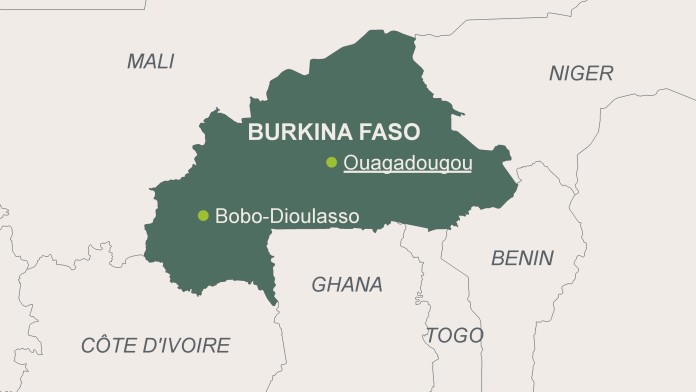
Burkina Faso is a country of farmers. The majority of people are dependent on subsistence farming, i.e. the cultivation of food for their own needs. Surpluses are sold on the markets. However, the harvests are often not even sufficient for farmers to feed their own families. On the other hand, the country is home to riches such as mineral resources like gold. This raw material is the most important export good, accounting for 80% of exports. The political situation has been unstable for some time, also as a result of the situation in neighbouring Mali.
Burkina Faso is one of the ten poorest countries in the world. Almost half of the population has to live with less than USD 2 per day and malnutrition is widespread. Roads, drinking water and sewage systems and other infrastructure elements are lacking in many places. Only about half of the population has access to schools or hospitals. The country is young: 65% of people are under 25 years of age. Many young people have little prospect of regular income and secure employment. A fragile security situation and the high number of internally displaced persons make the humanitarian and social situation more difficult. Climate change is also having a serious impact on the country. This is particularly evident in agriculture in the form of depleted soil and massive soil erosion.
Despite this difficult situation, it is important to reinforce societal cohesion and to enhance the living conditions of the population – through sustained growth, primarily based on a modernised agricultural sector. On behalf of the German Federal Government, KfW is supporting the country in the following areas:
• life without hunger – transformation of agricultural and food systems
• protecting the natural basis for our livelihoods
• peaceful and inclusive societies / human rights
On behalf of the German Federal Government, KfW is financing projects in Burkina Faso that contribute to higher agricultural productivity. It promotes programmes that support families in replanting their rice fields and vegetable gardens and cultivating a greater variety of crops. New grain storage facilities ensure dry and safe storage of the harvest.
Although the water and sanitation supply in Burkina Faso has been greatly expanded in recent years, almost 5 million people still have no access to clean drinking water. On behalf of the German Federal Government, KfW is financing water lines, water towers, public standpipes, and house and yard connections in small and medium-sized urban areas.
It is not just the water supply, other facilities are also inadequately developed. KfW is supporting 85 municipalities in three regions in expanding their infrastructure with funds from the municipal development fund.
Since more than 2 million internally displaced persons are now unable to return to their home areas in the medium term, targeted support is being provided for medium-sized towns in the north that have received many internally displaced persons.
Through the children and youth fund, KfW has been committed for many years to strengthening the rights of children and adolescents and opening up career prospects for them. KfW promotes school attendance and vocational training for boys and girls with scholarships and free school meals.
KfW is contributing to improved living conditions in Burkina Faso by facilitating access to clean water, strengthening food security and contributing to municipal development and the promotion of youth.
KfW Office Ouagadougou
Director KfW Office: Marième Kane
1485 Rue Jacqueline Ki-Zerbo
01 Ouagadougou
Burkina Faso
+226 25 30 80 77
Fax: +226 25 30 80 78